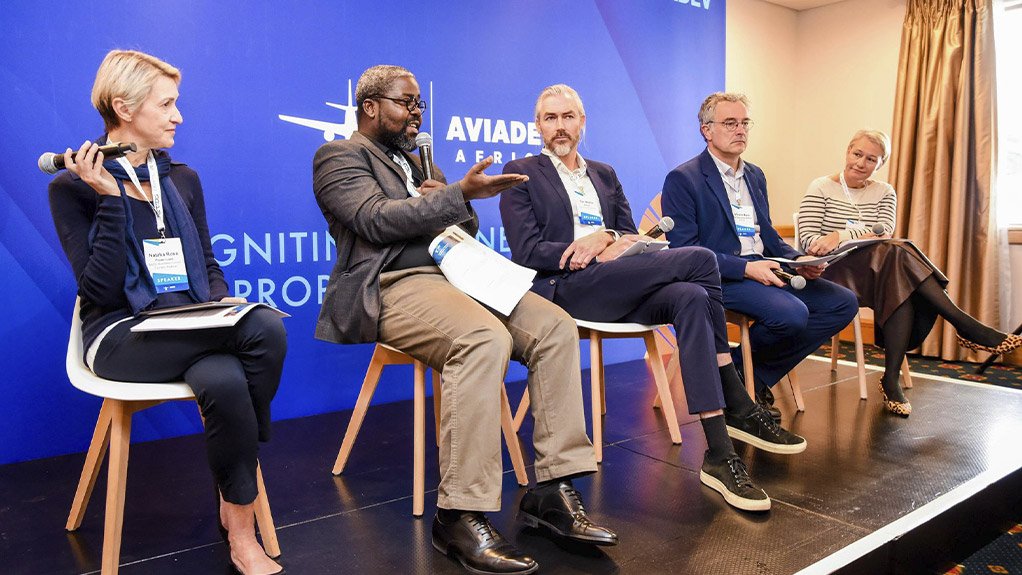
WINDHOEK, 5 July 2024 – Africa’s vast tourism potential remains untapped due to a lack of air connectivity, with the continent currently accounting for just 1.9% of global passenger and cargo traffic. However, aviation experts believe national tourism boards have a unique opportunity to promote new air routes and drive economic growth.
Speaking at a recent AviaDev Africa workshop organised in partnership with the SADC Business Council Tourism Federation, airline executives stressed that the power of tourism boards lies in using market data and industry relationships to convince sceptical airlines of the long-term viability of new routes.
“Tourism is not just entertainment; it is a vital economic activity that requires strategic thinking and cross-sectoral collaboration,” said Kojo Bentam-Williams, senior communications specialist for Africa at the UN Tourism Department.
Sylvain Bosc, former chief commercial officer of SAA and Fastjet, stressed the importance of demonstrating sustainable profitability. “Destination marketing organizations (DMOs) need to sell a long-term vision that highlights the destination’s growth prospects and economic impact,” he said. “Creative incentives such as joint marketing, reducing airline costs and quantifying passenger numbers will be more effective than direct subsidies.”
Bosque noted that DMOs should shed “new light” on the data airlines already have by providing insights into upcoming local economic developments, such as new mines or infrastructure projects that could lead to increased traffic for companies. “Local insights can give airlines the confidence they need to invest in new routes,” he said.
Ms. Natalia Rosa, Project Leader, SADC Business Council Tourism Federation, highlighted the important role of aviation in regional development, saying: “Aviation is not a luxury, it is the lifeblood of modern regional economies. Improved air connectivity brings multiple benefits – it makes travel more efficient, opens up new tourism markets and strengthens regional economic links.”
Gavin Eccles, vertical head at BAE Ventures, stressed that tourist boards need to “bring a seat at the table” with a compelling case backed by local market insight, connections to the travel industry and a unique selling point that airlines often lack.
“Tourism boards should not only provide data but also a local perspective that airlines may not have,” Eccles said, citing how poor connectivity is undermining India’s successful “Great India” brand.
Regional collaborations, such as harmonising visa policies, promoting joint travel arrangements and leveraging environmental protection funds, could also help fund route development, but Tim Harris of Helm Growth Advisors cautioned that “maintaining and expanding existing air service should be a priority before attracting new routes.”
While direct subsidies are of questionable sustainability, Bentham-Williams said other incentives would enable an “environment of trust” for profit-driven airlines.
“We need to change the mindset from simply paying airlines to fly routes to creating an environment of trust and confidence,” he said.
Gillian Blackbeard, CEO of Eden Tourism Africa, highlighted the success of the collaboration with Proflight through the support of local stakeholders and industry, building the airline’s trust without significant incentives.
“We worked closely with ProFlight and local stakeholders to ensure the route was supported by industry and the private sector. This built confidence in the airline and allowed the route to be successfully developed without significant financial incentives,” Blackbeard said.
A concerted effort leveraging DMOs’ destination expertise will enable improved connectivity – a lifeline for Africa’s tourism economy, which has long been hamstrung by inadequate air links.
The AviaDev Africa workshop was designed as an activity platform to address aviation challenges and jointly explore solutions. The aim from the beginning was to explore how tourism stakeholders, such as national tourism organizations and private tourism associations, can be involved in route development and support airlines in route promotion. The success of the workshop led to a commitment to participate in AviaDev 2025 in Zanzibar. Scheduled for the welcome reception day before the main conference, the workshop will equip tourism stakeholders with the fundamental building blocks of route development and feature two days of networking and collaboration focused on reimagining the future of aviation in Africa.
Source: Press release

